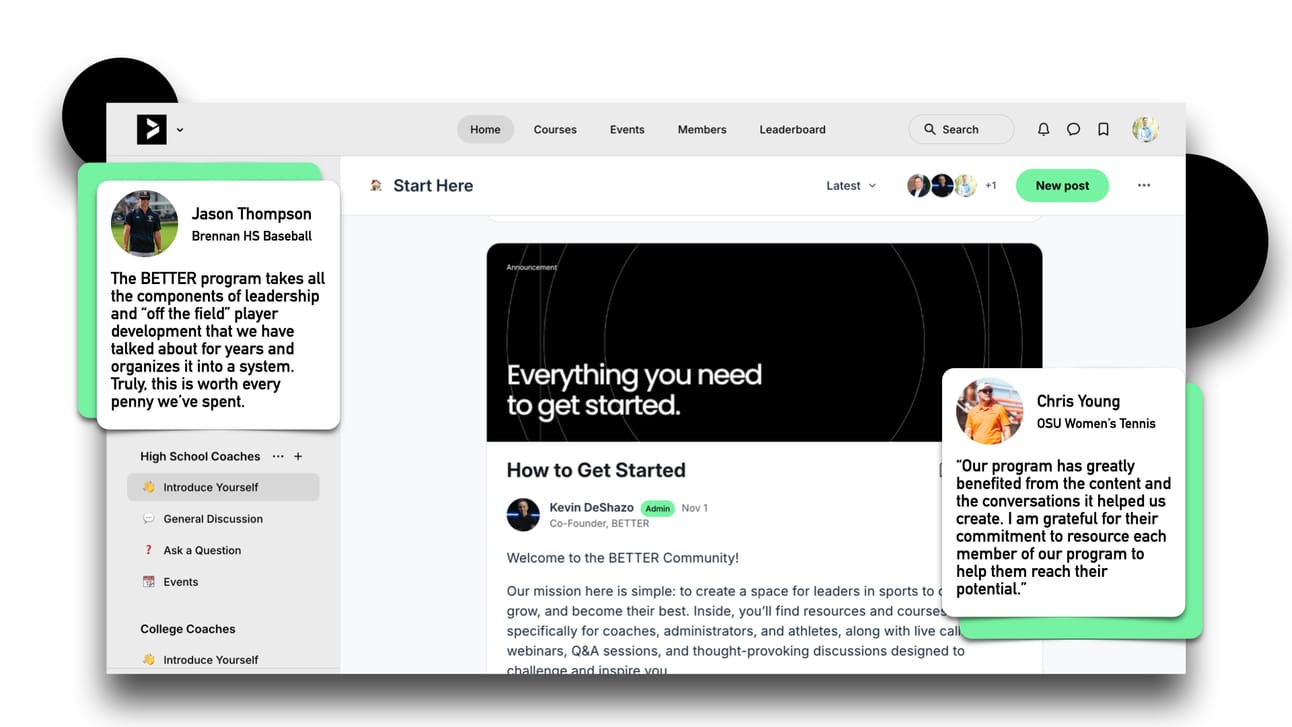
⏳ Read Time: 3 min
📌 What’s inside:
🏀 The grind is real: Why most leaders fade midseason
📊 The research: Habits, not talent, sustain long-term performance
🛠 Five practical habits to survive the grind and lead well
🤠 Gregg Popovich’s Spurs Consistency
Now that Popovich’s coaching career is over, we can examine it in its totality.
29 seasons
5 NBA Championships
Most wins of all time as a Head Coach (1309)
The accolades continue. However, upon examining his career further, we find a more profound sense of consistency.
Coach Pop’s teams were renowned for beating their projected Vegas Win-Totals — one of the first ways that smart analytics nerds (like Dean Oliver in his book, Basketball on Paper) started to try and capture exactly who the best coaches were.
In other words, Pop’s teams weren’t just good. They were consistently better than expected. One of the hallmarks of truly great coaches. They weren’t always the flashiest, but they were always prepared, always steady, and always unified.
What made the Spurs exceptional wasn’t just talent (though Tim Duncan, Tony Parker, and Manu Ginóbili didn’t hurt). It was Popovich’s ability to pace himself and his team through the grind of the NBA’s 82-game season.
Players have spoken often about how Popovich balanced demanding standards with deliberate rest, how he kept his staff aligned, and how he never lost his identity as a leader. That’s what it takes to survive the grind.
📊 Research Insight: Why Habits Matter More Than Talent
Sports psychology research shows that burnout isn’t caused only by workload—it’s caused by the absence of recovery, routines, and alignment.
A 2024 study in the Journal of Applied Sport Psychology found that coaches who engaged in brief, mindful self-reflection practices were better able to sustain high performance and reduce symptoms of burnout across the season. In other words, self-regulation isn’t just a nice-to-have; it’s a protective factor that keeps leaders steady through the grind.
Organizational psychology adds another layer: James Clear (Atomic Habits) popularized the truth that you don’t rise to the level of your goals, you fall to the level of your systems.
In other words, the grind isn’t survived by talent or ambition alone. It’s survived by leaders who anchor themselves in small, repeatable habits.

🛠️ Putting It All Together:
🛠 Five Habits That Quietly Separate Survivors from Faders
Regulate Before You React
When the room gets chaotic, your presence sets the tone. Before you respond, take a breath, find your anchor, and then speak.
Double Down on Details
When everyone else is tired, small standards slip. Survivors tighten them. Whether it’s scouting reports or game-day operations, details keep culture intact.
Rest Like It’s Part of the Game Plan
A depleted leader can’t inspire a drained team—schedule recovery with the same intentionality as practice or meetings. Recovery is leadership.
P.S. This is precisely what we do when coaches call us on the brink of burnout. We ask, “Where can we see your rest on your calendar? If it’s not there — it isn’t happening.”
Stay Aligned with Your Staff
Disunity at the staff table often spills over into the locker room. Establish rhythms of alignment with your assistants or department heads so that your team hears a unified voice.
Again, can we see it on your calendar? 1-on-1s? All staff? Formal vs informal?
Lead from Identity, Not Insecurity
When the grind whispers, “change who you are,” the best leaders stay anchored in their values. Insecurity reacts; identity endures.
🏁 Conclusion: Daily Disciplines
The grind doesn’t just test your team—it tests you. It exposes habits. The leaders who survive aren’t the loudest or most talented. They’re the ones who regulate, recover, and repeat the habits that keep themselves, their staff, and their teams steady.
Survival isn’t about luck. It’s about habits.
P.S. Next week, we’re releasing our first PowerBook: Lead Yourself First. It’s a practical guide for building the kinds of habits that help you survive the grind — and lead others more effectively. Stay tuned.
🧱 Webinar on Handling Adversity
Two weeks ago, Kevin and Seth led a Webinar on Handling Adversity to all of our coaches in our Culture Playbook Community.
If you'd like to view the webinar, please reply to this email and we’ll be happy to share it with you.

It’s part of what we do every month in our Coach Community, as outlined in our Culture Playbook.
Want to make sure you're part of every Webinar?
🛠️ Want to win more? Know Yourself First.
Just last week, nearly 60 leaders signed up for our 5-day leadership course based on your Voice!

It will be sent to your inbox starting the Monday after you take the assessment and run for that week.
The assessment takes 10-15 minutes. Take it below.

